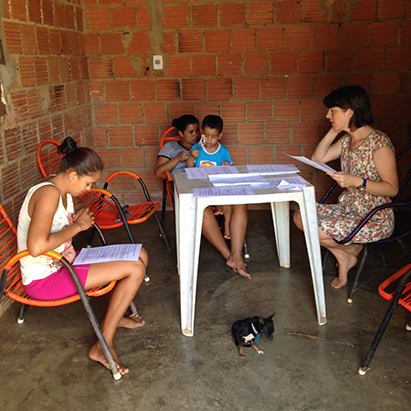 Focus
Focus
The biocultural medical anthropology component of the doctoral program examines interactions among sociocultural and biological determinants of adaptation, especially with regard to physical and psychological health.
Biocultural medical anthropology, a specific approach within the more general subfield of medical anthropology, strives to understand why people grow and develop as they do and why they may be at risk for health problems. It is part of the largest and fastest-growing subfield within anthropology and is increasingly relevant to research and training across a number of areas, from applied health sciences and transcultural psychiatry to epidemiology and community health development. Biocultural anthropologists attempt to use research findings for the benefit of communities as well as care providers.
Our central approach is to combine the biological and cultural aspects of medical anthropology. This biocultural perspective on health and illness is essential to the study of the topics in which the department specializes: cultural and biological influences on health and mental health; treatment choice and healing; reproductive health; how culture shapes physiology; fetal and childhood growth and development; and paleopathology, among others.
Our core biocultural faculty have integrative research interests and teaching expertise that spans cultural, biological, and linguistic anthropology. Our doctoral alumni have been successful in both academic and non-academic/applied career pathways.
Applying to Our Program
Students should apply to our program with the intention of working with one or more specific advisors. While students will have a main advisor who is trained primarily as a biological, cultural, or linguistic anthropologist, we ensure integration of biological and cultural perspectives through coursework, co-mentorship, and committee composition. Relationships with advisors involve mentorship as the student moves toward a mastery of the craft of original research and publication and gains familiarity with the role of a colleague. Our admissions procedures are discussed in the Graduate Catalog.
Degree Requirements
To see the full requirements for the PhD in Anthropology, including requirements specific to the Biocultural Medical Anthropology focused area of study, see the Graduate Catalog. What follows are selected highlights.
Required Courses
Required courses for the PhD program with a focus in Biocultural Medical Anthropology are as follows:
- ANT 601 Advanced Research Design
- ANT 610 Theory and Method in Medical Anthropology
- ANT 612 Seminar in Biocultural Anthropology
Additional coursework is elective and supports the student’s specific area of research interest.
Language Requirement
A reading facility in one foreign language appropriate to the research topic must be demonstrated, either by successful completion of two semesters of foreign language course work or by examination.
Fieldwork Requirement
The degree requires that applicants experience substantial ethnographic fieldwork.
Funding
Students entering the PhD program are guaranteed a conditional five years of funding. The first three years are guaranteed, subject to adequate academic progress and as long as good academic standing is maintained, including meeting or exceeding expectations during the annual progress review. Two additional years, for five years total, are contingent upon advancing to candidacy by Dec. 15 of the third year in the program or May 15 of the third year for direct-to-doctorate students. We also strongly support students in their efforts to compete for external funding, and our program has a strong track record both with University-wide fellowships and with National Science Foundation dissertation grants. Please see the Anthropology PhD program funding page in the Graduate Catalog for more details.
More Information
To learn more about the department’s graduate programs, contact Dr. Elliot Blair, Director of Graduate Studies.